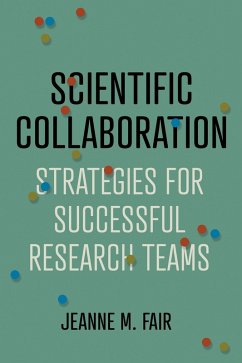The days of scientists conducting solitary inquiries in isolated labs are effectively over, with most researchers instead collaborating in cross-functional teams. In addition to mastering the technical skills necessary in their respective fields, scientists must now learn strategies for better communication and relationship building to succeed in reaching their research goals. In Scientific Collaboration, biosecurity researcher and animal disease ecologist Jeanne M. Fair shares exciting-and occasionally cringeworthy-true stories of scientists working together. These examples provide an approachable way to introduce the principles crucial to effective scientific collaboration.
From the global community of scientists measuring sea-ice decline to cooperative private-public sector investigations of harrowing virus outbreaks, the experiences described demonstrate how scientists can rise to meet challenges together. Fair explains how to foster the principles of community, integrity, loyalty, communication, and compassion among teams. Scientists adopting and applying these principles will improve communication and trust among team members while they work toward the common goal of discovery.
Highlighting multidisciplinary research teams that have achieved transformational breakthroughs as well as stories of tough lessons learned, Scientific Collaboration provides a foundation for increasing research productivity while bringing more fun into the collaborative process. This book will appeal to all scientists and team leaders in this new scientific world, wherein the most important breakthroughs happen through cooperation, combined effort, and mutual trust.
Dieser Download kann aus rechtlichen Gründen nur mit Rechnungsadresse in A, B, BG, CY, CZ, D, DK, EW, E, FIN, F, GR, HR, H, IRL, I, LT, L, LR, M, NL, PL, P, R, S, SLO, SK ausgeliefert werden.









